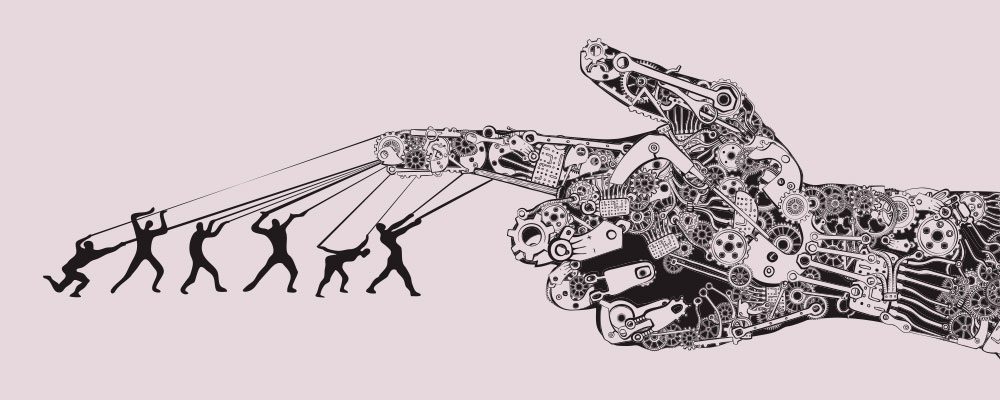Within the next 10 to 15 years, nearly 40 percent of jobs that exist today have a high prospect of vanishing thanks to the technological revolution. Gone are the days where we would wake from a ‘knocker-up’ who tapped on our windows instead of an alarm, or even waking from a dedicated alarm clock, with most of us now waking by way of our smartphones. Depending on how old you are, you may recall going to the post office, or even talking to an operator to pay our bills over the phone, but now, the majority of our interactions are done online and via smartphones and Apps.
Now, we can immerse ourselves into a world of imagination just by one click on our television remotes, streaming a vast array of choice via our smart TV’s. Or, if we dared….summon a driverless car to travel from A to B. Consequently and often unconsciously, we interact with technology daily to allow for a bit of ease to enter our life, however, what does this really mean for our future careers?
It is common ground that task-oriented roles in manufacturing are one of the most susceptible occupations to this revolution and we have seen the decrease in the number of roles and the reliance on such roles over time as the capabilities of technology have increased. Nonetheless, other careers in intelligence and automation and roles in service provision are also quite vulnerable.
If you’re anxious about this revolution and what this means for your career, ask yourself these following questions:
- Can technology perform my role?
- What capabilities and advantages does technology deliver and offer that I can’t match?
- Is my role currently being modified or reduced because of automation and technology advances?
If you have answered yes to these questions, it‘s time to have a think about what you can do to mitigate or minimise the impact that technology and its advances can have on your employability both now and into the future
Be Proactive!
The technological revolution goes hand in hand with continuous learning as new information is constantly evolving. Therefore, proactivity is significantly important in a dynamic world. If your skills move with your career, it will make it more hard for your technological competitor to replace you. Around 80 percent of people are constantly upgrading their skills to prevent this technology revolution from taking over their role, so it is vital to decide whether you want to be included in this statistic.
Embrace different skills!
Sure, technology can perform and work significantly well in various sectors, however, technological advances can’t encompass the qualities and skills that humans possess. In saying this, critical thinking is highly favoured as it offers analytical thinking, decision making and the ability to provide better judgement. Self-awareness possesses the ability to reflect on how our attitude may impact and affect our surroundings, whilst social intelligence enables us to read emotions and body language and exhibit appropriate responses such as empathy. Unlike technology, we can act on cues from facial expressions, tone of voice and stance, which enables trust to be formed while promoting human connection and interaction.
Stay in a position that requires human touch.
As set out above, technology can lack emotional intelligence such as empathy, social perceptiveness and the ability to care for humans. Therefore, roles such as therapists, social workers and psychologists are likely to be less affected by this revolution as they all encompass the ability to feel emotion. Choose a role that incorporates communication and you will not be touched by the future fears.
Tackle the Tech!
Like numeracy and literacy, coding is included in most schooling curriculum to prepare children for the workforce and the changed environment. Therefore, despite the fact that your current role may not be associated with technology, learn about coding, big data, cloud computing and UX design to transition to digital roles if it comes to the crunch.
Conclusion
While technology is expanding with the overwhelming power of automation and becoming our future substitute, this does not mean that needs to in totality. Possess soft skills that include personalisation and a form of emotional intelligence, this enables companies to view your worth and value which in turn, prevents technology from replacing your role. Consequently, individuals who brace imagination and forward-thinking will be valuable to companies as one needs to realise their value and their impact in order to exceed and surpass the technological revolution!

